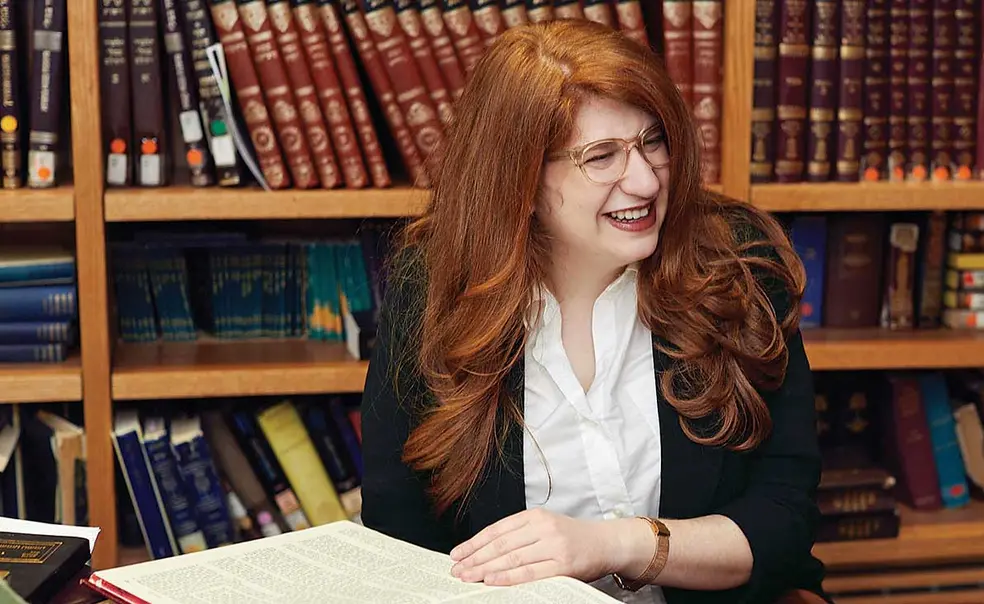Alumna Is Princeton’s First To Be Ordained As Orthodox Rabbi
“I believe Torah always speaks to the current moment”
Atara Cohen ’16 was 11 when she began studying Talmud at her Modern Orthodox Jewish day school in Riverdale, N.Y. “I loved it,” she says. What she relished most was delving into the contradictions within the Talmud, a centuries-old compilation of rabbis debating Jewish law.
“On one page, it would say something like, ‘Suffering is great. It absolves sins.’ Another page would say, ‘Suffering is something you don’t have to accept,’” she says. “Arguing out the logic is a lot of fun. The ideas and values go deep.” That fascination with probing Jewish thought, coupled with a desire to serve the community, led Cohen to become the first Princeton alumna to be ordained as an Orthodox rabbi, according to Rabbi Julie Roth, the executive director of the University’s Center for Jewish Life. The ceremony was held on Zoom June 9.
Women have long served as rabbis in Judaism’s Reform and Conservative movements, but Orthodox Judaism has barred women from many roles, including rabbi. Cohen has spent the last four years studying at Yeshivat Maharat, the first school to train female clergy in the Orthodox tradition, though it is not sanctioned by most Orthodox governing bodies. Founded in 2009, the school — at the synagogue that Cohen attended while growing up — has more than 30 graduates. All the students are women.
“I find it incredibly exhausting to have conversations about whether it’s OK for women to be rabbis.” — Atara Cohen ’16
Cohen doesn’t focus on seeing herself as a trailblazer or on the controversies surrounding her role. “I find it incredibly exhausting to have conversations about whether it’s OK for women to be rabbis,” she says. “I’ve found I don’t need to have those conversations. For me, I just need to do the work, and the work will show for itself that what I’m doing is worthwhile.”
With her job search on pause due to the pandemic, Cohen hopes to eventually find a position in which she can bring tradition into people’s lives, either at a synagogue, a college campus, or a social-justice organization.
In the last few years, Cohen has served the community in a various roles, from an internship as a hospital chaplain at Mount Sinai Beth Israel in Manhattan to a summer working at a human-rights organization to teaching second-century texts to congregants at Congregation Beit Simchat Torah in New York City, where she is a pastoral and educational intern. During the COVID-19 crisis, she has been leading classes online and comforting congregants by phone.
“Some are dealing with loneliness, some are coping with four children under the age of 5,” says Cohen, who often shares psalms that address modern issues with congregants. “Reading ancient texts that describe people in predicaments makes us feel less lonely,” she says. “I believe Torah always speaks to the current moment.”












No responses yet